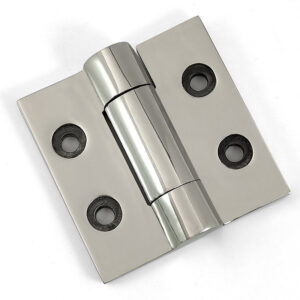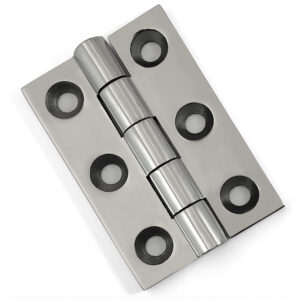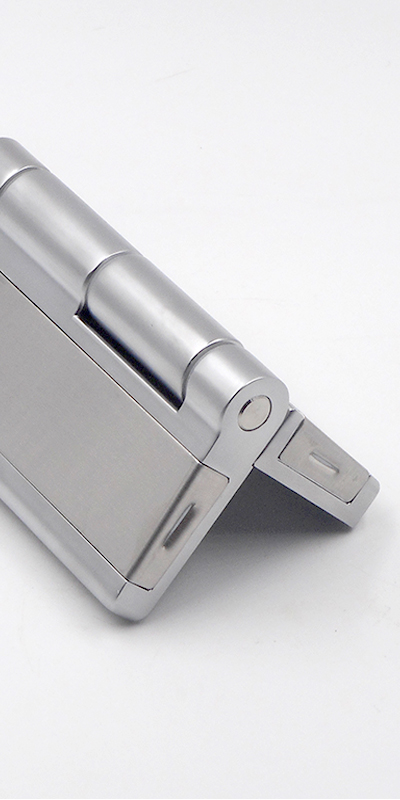Proper lubrication is essential to the performance and longevity of heavy-duty barrel hinges in industrial machinery and equipment.
Lubrication is crucial for heavy-duty barrel hinges as it reduces friction, prevents rust, improves load-bearing performance, and significantly extends service life. The right lubricant minimizes wear and enhances motion efficiency, especially in demanding industrial settings where hinges endure frequent use and high loads.
Let’s explore how lubrication enhances hinge durability and protects your equipment investment.
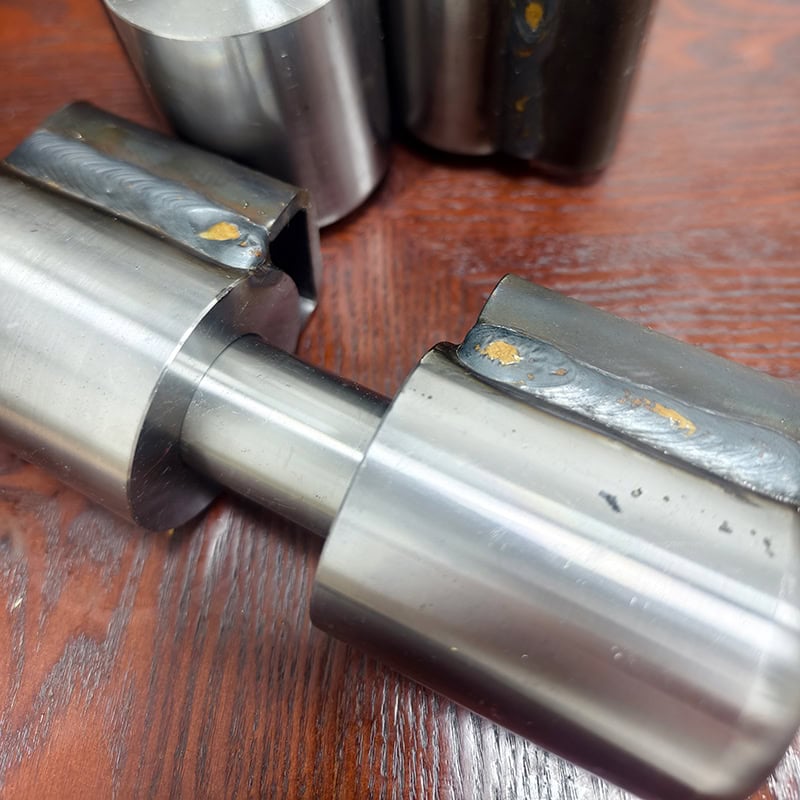
How Does Lubrication Reduce Friction in Heavy-Duty Hinges?
Friction is the main culprit behind hinge wear. Lubrication provides a film that prevents metal-to-metal contact during hinge operation.
Lubricants reduce surface friction by creating a barrier between moving parts. For heavy-duty hinges, this prevents direct contact, minimizing heat and wear even under heavy pressure.
Friction and Metal Fatigue in Industrial Hinges
When heavy-duty barrel hinges operate without lubrication, the constant metal-on-metal contact generates excessive heat and leads to the gradual erosion of the hinge’s contact points. This accelerates the development of micro-cracks, which expand under load stress and cause hinge deformation or failure over time.
Lubrication interrupts this destructive cycle by forming a resilient film layer. In industrial applications—such as those involving cold storage room hinges or climatic test chamber hinges—this protective layer plays a critical role in maintaining structural integrity under repeated stress and extreme conditions.
Lubricant as a Protective Layer
For slow-moving, high-load systems, industrial grease is ideal due to its viscosity and cling. In contrast, oil-based lubricants are used in light-load, high-speed applications. The choice impacts performance and lifespan.
| Lubrication Type | Best Use Case | Friction Level | Longevity |
|---|---|---|---|
| Grease | Slow, heavy-load hinge systems | Low | High |
| Oil | Fast-moving, light-load hinge systems | Medium | Moderate |
Using the wrong type of lubricant, or failing to lubricate at all, shortens hinge life significantly.
What Role Does Lubrication Play in Corrosion Resistance?
Lubrication shields metal surfaces from moisture and oxygen, two leading causes of corrosion in industrial environments.
Heavy-duty barrel hinges benefit from lubrication by forming a barrier that prevents rust and corrosion. This is especially critical in humid, outdoor, or marine industrial settings.
Moisture Ingress in Industrial Environments
Industrial hinges deployed in outdoor or high-humidity environments—such as marine hinges or outdoor industrial hinges—are vulnerable to rapid corrosion without lubrication. Once rust begins, it spreads within the barrel joint, increasing hinge stiffness and eventually locking movement altogether.
Consistent lubrication blocks moisture from settling on exposed surfaces and inhibits the chemical reactions that cause rust. In coastal regions or chemical plants, this function is not optional—it’s a necessity.
Anti-Corrosive Properties of Grease
Specially formulated industrial greases often contain anti-corrosive additives. These additives repel water and seal microscopic cracks where moisture might enter. This ensures long-term performance of critical hinges like weld on hinges used on heavy machinery or enclosures.
Regularly lubricated hinges remain cleaner, operate more smoothly, and have reduced downtime from corrosion-related failure.
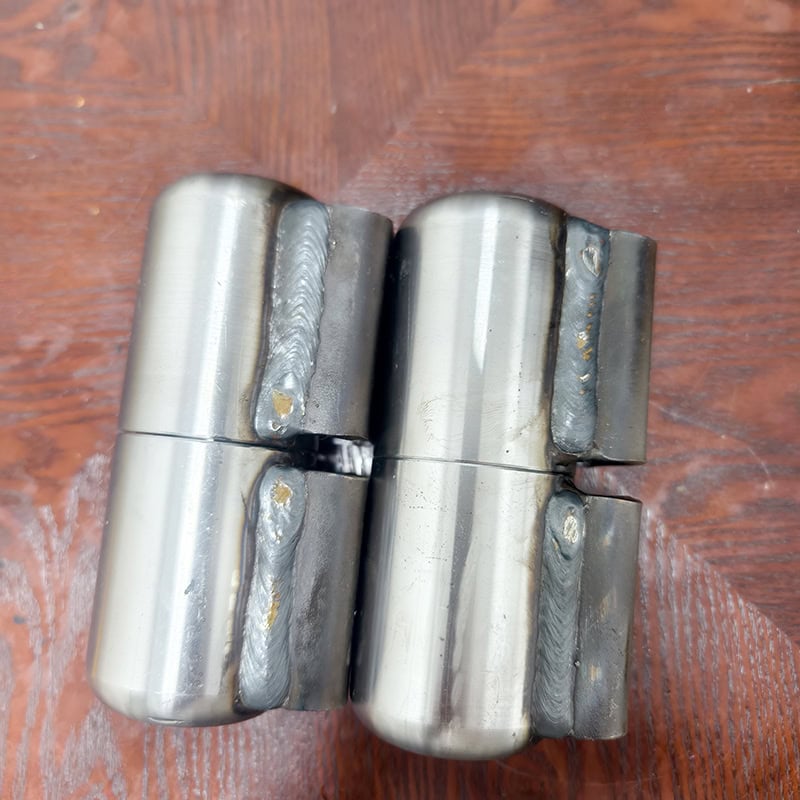
How Does Lubrication Improve Load-Bearing and Safety Performance?
Lubrication enhances hinge performance under heavy loads by ensuring smoother pivoting and reducing the chance of failure.
Heavy-duty barrel hinges, when properly lubricated, distribute loads more evenly and reduce wear at pressure points, enhancing equipment safety and durability.
Load Shifts and Hinge Failure Risks
In load-intensive industries, like manufacturing or transport, hinges are exposed to fluctuating and often intense weight stress. A poorly lubricated hinge increases friction at the pivot point, causing uneven load distribution. This stress can result in pin deformation or catastrophic hinge failure.
For systems that use trailer door hinges or replace industrial door hinges, poor lubrication could mean operational shutdowns or safety risks.
Load Distribution Efficiency with Lubrication
Lubrication acts like a cushion under pressure. When hinges move, the film layer allows for smooth, even rotation, reducing stress on the hinge pin and frame. This smooth movement improves mechanical efficiency and safety.
In critical operations—such as aerospace equipment access doors or temperature-controlled testing enclosures—this translates directly into improved operational reliability.
Why Is Lubrication Essential for High-Frequency or Vibrational Applications?
Constant movement and vibration can quickly degrade unlubricated hinges. Lubrication acts as a buffer against these stresses.
In high-frequency or vibration-heavy applications, lubrication reduces wear, absorbs shock, and prevents premature fatigue in barrel hinges.
Industrial Use Cases with Vibration
Applications such as automated arms, production lines, and test chambers expose hinges to non-stop motion. Without lubrication, the repeated opening/closing or pivoting of a hinge causes overheating, excessive friction, and ultimately failure.
Hinges like special hinges, often used in precise test environments, require a stable motion with minimal resistance. Lubrication provides this consistency.
Vibration Dampening and Lubrication
Greases designed for vibration-heavy environments contain thickeners and damping agents that absorb mechanical shocks. This not only prevents rapid degradation but also stabilizes hinge movement—critical in sensitive instruments or constant-use machinery.
Proper lubrication also reduces operational noise, making it beneficial for both safety and performance monitoring.
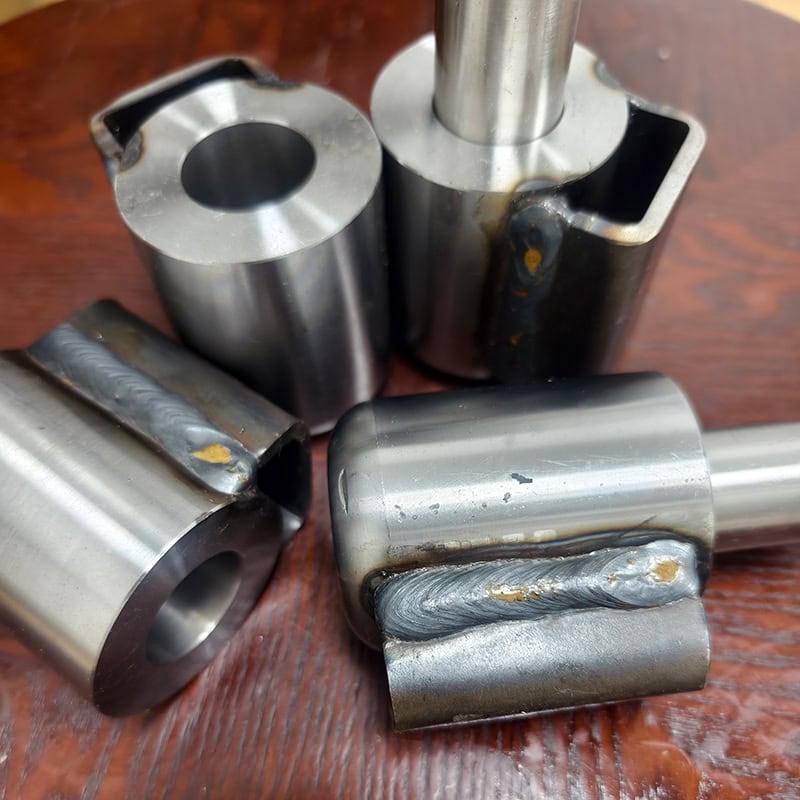
What Are Best Practices for Lubricating Heavy-Duty Barrel Hinges?
Proper timing, lubricant type, and application method determine the effectiveness of hinge lubrication.
Lubricate heavy-duty barrel hinges every 3–6 months using the correct grease or oil based on load and speed. Avoid contamination and over-application.
Maintenance Schedule
In industrial use, hinge lubrication should be part of preventive maintenance. The frequency depends on environmental exposure and motion cycles. For instance, high-moisture environments may require monthly lubrication, while enclosed, low-use hinges may go six months.
Before reapplying lubricant, always clean the hinge area to prevent grime from mixing with fresh lubricant, which can create a grinding paste.
Application Method
Apply lubricant directly to the hinge pin or designated lube points. In some cases, dismantling is required to access internal contact surfaces. Always rotate the hinge during application to ensure even coverage.
| Task | Frequency | Notes |
|---|---|---|
| Lubrication | 3–6 months | More frequent in corrosive settings |
| Inspection | Monthly | Look for binding, wear, or noise |
| Cleaning before lube | Every application | Use solvent or lint-free cloth |
Properly maintained hinges ensure machinery uptime and reduce emergency repair costs.
Conclusion
Proper lubrication of heavy-duty barrel hinges is essential for maximizing service life, improving safety, and reducing downtime in industrial applications.

